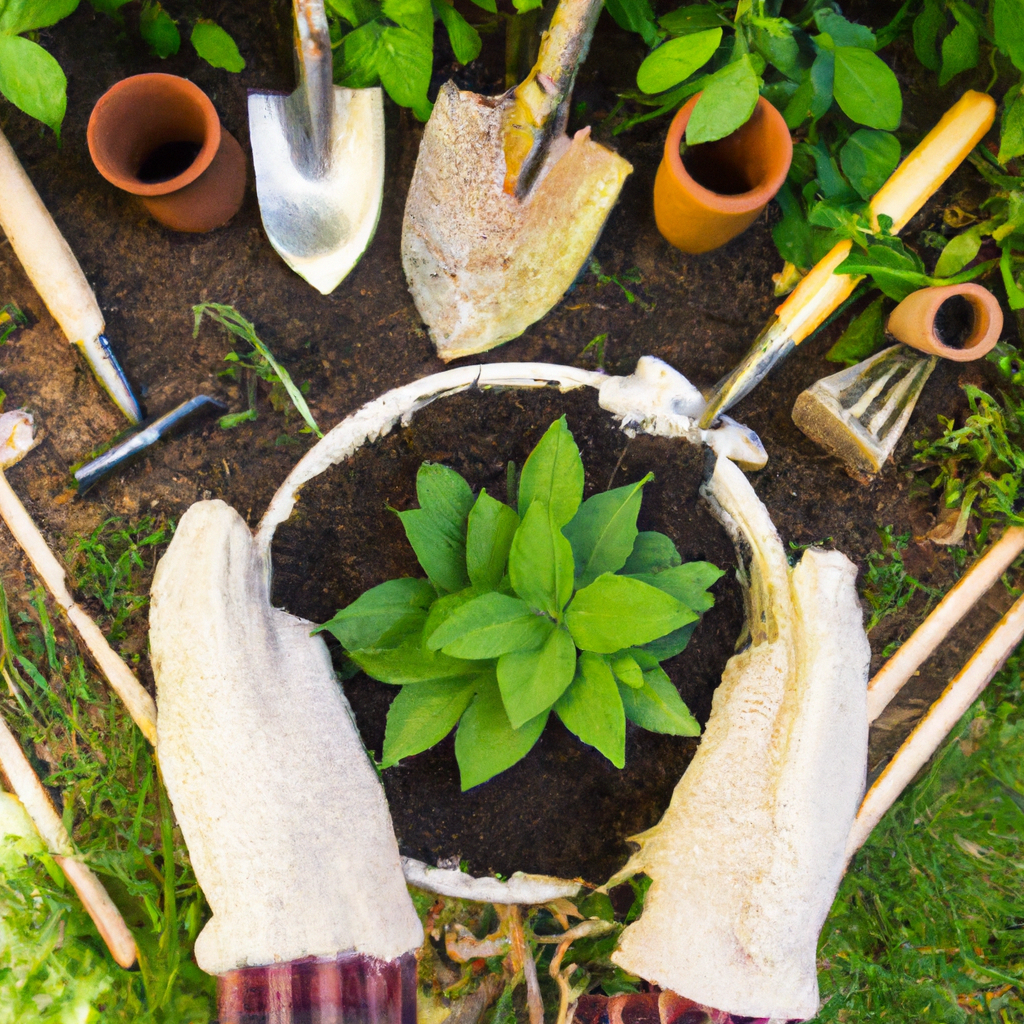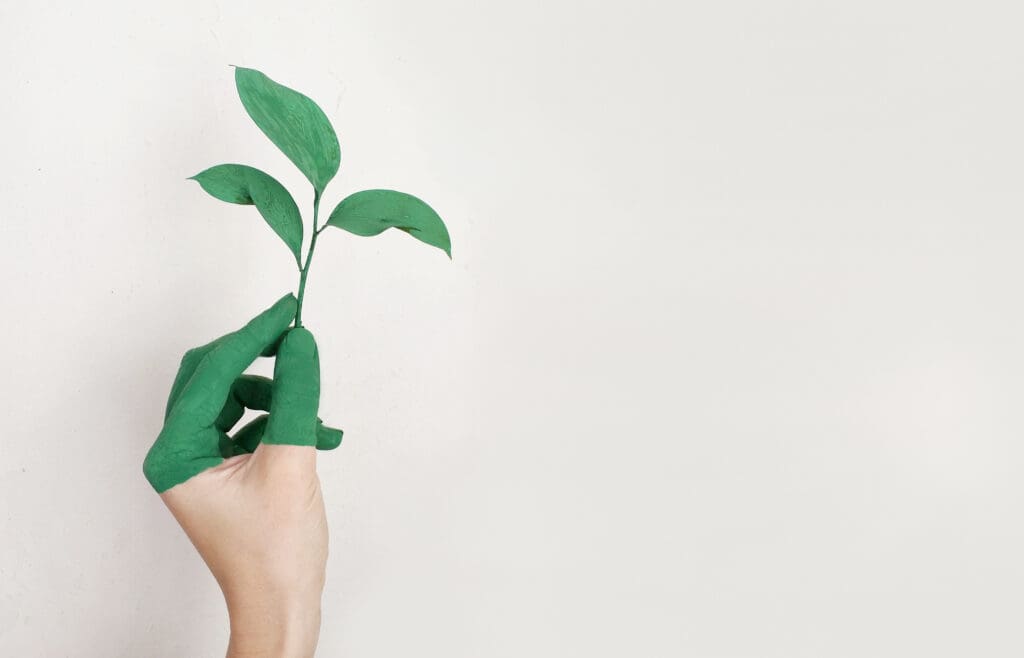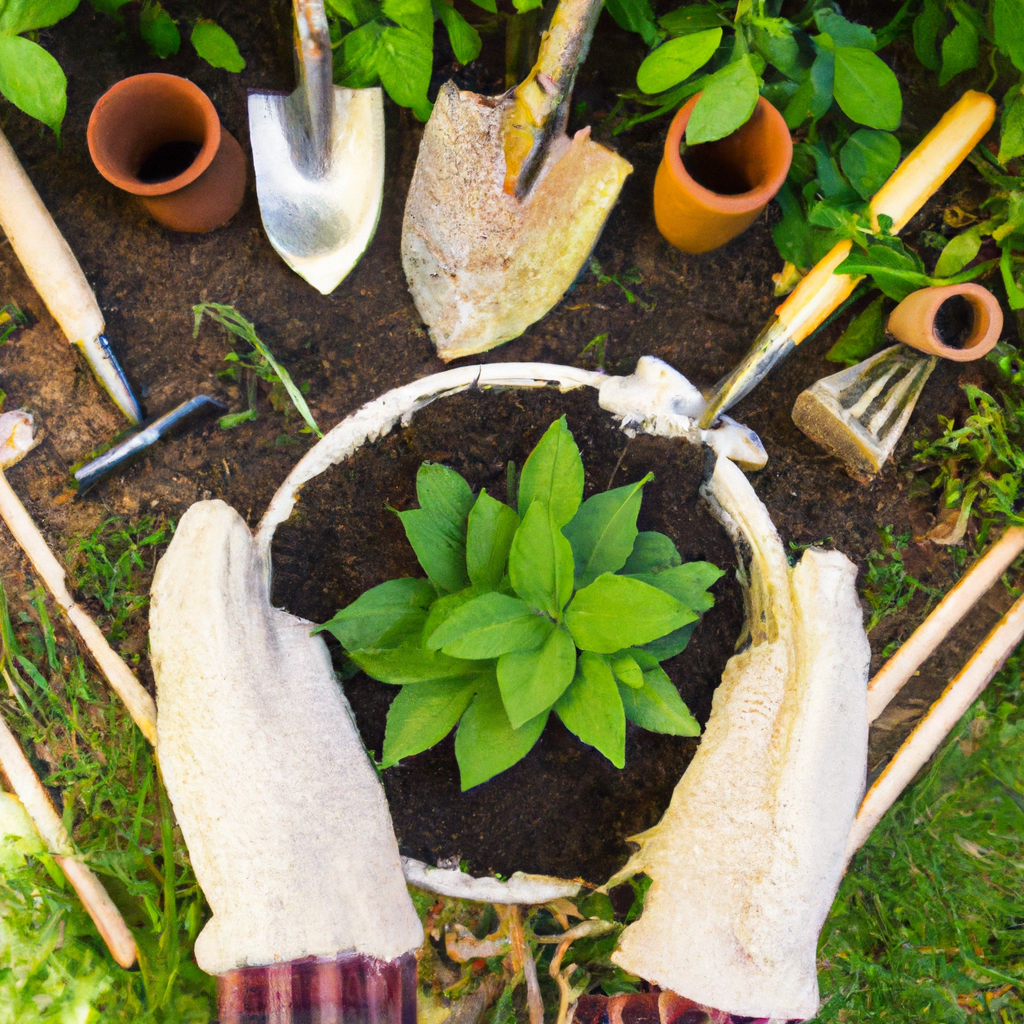Have you ever wanted to embark on a sustainable DIY project but felt overwhelmed by the lack of guidance on what tools and materials to use? Look no further! In this article, we will explore the essentials needed for eco-friendly DIY projects in a green workshop. From sustainable materials to efficient tools, we’ve got you covered. Whether you’re a seasoned DIY enthusiast or just starting out, this guide will provide you with the knowledge and inspiration to create beautiful and environmentally-friendly projects that will make your home truly unique. So, roll up your sleeves and let’s get started on this exciting journey towards a greener future!


Building a Green Workshop
Choosing a Suitable Location
When building a green workshop, one of the first considerations is choosing a suitable location. Look for a space that provides ample natural light, as this can help reduce the need for artificial lighting during the day. Additionally, consider proximity to public transportation and amenities to minimize the environmental impact of commuting to and from the workshop. By selecting a location that is easily accessible, you can also encourage others in your community to participate in sustainable practices.
Designing with Sustainability in Mind
Designing your workshop with sustainability in mind is essential for creating an eco-friendly space. Consider using sustainable building materials such as reclaimed wood, recycled metal, or salvaged materials. These options not only minimize the impact on forests and natural resources but also add character and uniqueness to your workshop. Furthermore, ensure proper insulation and ventilation to reduce energy consumption for heating and cooling.
Energy-Efficient Lighting
Choosing energy-efficient lighting is a crucial aspect of building a green workshop. Opt for LED or CFL bulbs, as they consume significantly less electricity and have a longer lifespan compared to traditional incandescent bulbs. Additionally, install motion sensor switches or timers to ensure that lights are only being used when necessary. This not only helps reduce energy consumption but also contributes to cost savings in the long run.
Sourcing Eco-Friendly Tools
Hand Tools Made from Sustainable Materials
When sourcing tools for your green workshop, prioritize those made from sustainable materials. Look for hand tools that are crafted from responsibly sourced wood or bamboo. These materials are renewable and often provide a more comfortable grip, allowing for precise and efficient work. By choosing tools that are made with sustainability in mind, you can reduce your ecological footprint and support the use of natural resources in a responsible manner.
Energy-Saving Power Tools
While power tools may offer convenience and efficiency, they can also consume a significant amount of energy. To minimize the environmental impact of your workshop, opt for energy-saving power tools. Look for tools with energy-efficient motors or those that have a power-saving mode. Additionally, consider investing in cordless tools that utilize rechargeable batteries, as they are more energy-efficient than their corded counterparts.
Secondhand and Upcycled Tools
Another sustainable option when sourcing tools for your green workshop is to explore secondhand and upcycled options. Many tools are built to last and can still be fully functional after years of use. Check out local thrift stores, garage sales, or online marketplaces for pre-owned tools. Additionally, consider reaching out to local woodworking or DIY communities to trade or borrow tools. By giving these tools a second life, you contribute to reducing waste and promoting sustainable practices.
Eco-Friendly Materials for DIY Projects
Sustainable Woodworking and Carpentry Materials
When working on DIY projects in your green workshop, choose sustainable woodworking and carpentry materials. Look for wood that is certified by organizations like the Forest Stewardship Council (FSC), which ensures that it comes from responsibly managed forests. Alternatively, consider using reclaimed wood from old furniture, buildings, or pallets. Reclaimed wood not only adds a unique character to your projects but also reduces the demand for virgin timber.
Recycled and Upcycled Materials
In addition to sustainable wood, incorporate recycled and upcycled materials into your DIY projects. Look for materials such as recycled plastic, metal, or glass. These materials can be found in various forms, including sheets, tiles, or even recycled packaging materials. By using these materials, you divert waste from landfills and give them a new purpose, reducing the need for virgin resources.
Non-Toxic Paints and Finishes
Choosing non-toxic paints and finishes is crucial to maintaining the eco-friendliness of your green workshop. Traditional paints and finishes often contain harmful volatile organic compounds (VOCs) that can be released into the air, contributing to indoor air pollution. Instead, opt for low or zero VOC alternatives. These options are safer for both the environment and your health. Look for paints and finishes labeled as “eco-friendly,” “low VOC,” or “water-based” to ensure they meet your sustainability goals.
Energy-Efficient Workshop Equipment
High-Efficiency Heating and Cooling Systems
Maintaining a comfortable temperature in your workshop is important, but it can also consume a significant amount of energy. Opt for high-efficiency heating and cooling systems to minimize energy waste. Consider installing energy-efficient HVAC units with programmable thermostats to regulate temperature settings. Additionally, proper insulation and weatherstripping can help retain heat or cool air, reducing the reliance on heating or cooling systems.
Energy-Saving Appliances
When selecting appliances for your workshop, choose energy-saving models. Look for appliances with Energy Star certification, as they are designed to consume less energy without compromising performance. Appliances such as refrigerators, air compressors, and power tools can have a significant impact on energy consumption. By investing in energy-saving appliances, you not only reduce your carbon footprint but also save on energy costs in the long term.
Integrating Renewable Energy Sources
Consider integrating renewable energy sources into your workshop to further reduce your environmental impact. Solar panels, for example, can generate clean and sustainable electricity to power your tools and equipment. Additionally, wind turbines or small hydropower systems can be viable options depending on the availability of natural resources in your area. By harnessing renewable energy, you can create a truly green workshop that operates on sustainable and clean power sources.


Water Conservation Techniques
Harvesting and Reusing Rainwater
Water is a valuable resource, and conserving it is vital in a green workshop. Consider implementing rainwater harvesting systems to collect and store rainwater for various uses. This water can be used for tasks such as cleaning tools, watering plants, or even flushing toilets. Install rain barrels or cisterns to capture rainwater from your workshop’s roof, and ensure proper filtration to remove debris and impurities. By reusing rainwater, you reduce reliance on municipal water sources and conserve this precious resource.
Low-Flow Plumbing Fixtures
In addition to rainwater harvesting, incorporating low-flow plumbing fixtures is another effective water conservation technique in a green workshop. Install low-flow faucets, toilets, and showerheads that are designed to reduce water consumption without sacrificing functionality. These fixtures use aerators or flow restrictors to limit water flow while maintaining adequate pressure. By using less water during everyday tasks, you contribute to water conservation efforts and reduce your workshop’s ecological impact.
Optimizing Water Usage in Projects
Being mindful of water usage during projects is essential for maintaining a green workshop. Plan your projects in a way that minimizes water waste. For example, use wet rags or buckets to collect excess water when cleaning tools or materials. Consider using dry brushing techniques instead of rinsing paint brushes to save water. By optimizing water usage, you not only conserve this valuable resource but also foster a more sustainable approach to your DIY projects.
Green Waste Management
Implementing Recycling Systems
Proper waste management is key to maintaining a green workshop. Implement recycling systems that make it easy for workshop users to separate and dispose of recyclable materials. Set up designated recycling bins for plastics, paper, glass, and metal. Clearly label each bin to ensure proper sorting. Additionally, establish a system for recycling batteries, electronics, and other hazardous materials. By promoting recycling, you minimize waste sent to landfills and support the recycling industry.
Composting Organic Waste
Incorporating composting into your green workshop’s waste management system is an excellent way to reduce organic waste and create nutrient-rich soil. Set up a composting bin or heap for vegetable scraps, coffee grounds, and other organic materials. Ensure proper aeration and moisture levels to facilitate decomposition. Use the resulting compost in your gardening projects or consider donating it to local community gardens. By composting organic waste, you contribute to a circular economy and reduce the need for synthetic fertilizers.
Reducing Waste and Upcycling Scraps
To further minimize waste in your green workshop, prioritize waste reduction and upcycling. Whenever possible, aim to generate as little waste as possible during projects. Plan your cuts and measurements carefully to maximize material usage and minimize scraps. Additionally, explore creative ways to upcycle or repurpose scraps. For example, small pieces of reclaimed wood can be transformed into decorative accents or used in smaller projects. By embracing waste reduction and upcycling, you contribute to a more sustainable and resourceful workshop.


Promoting Sustainable Practices
Educating Workshop Users
Promoting sustainable practices in your green workshop goes beyond your individual efforts. Educate workshop users about the importance of eco-friendly practices and provide resources to support their sustainability journey. Conduct workshops or tutorials on topics such as upcycling, energy efficiency, and waste reduction. Share information about sustainable materials and tools to help users make informed choices. By educating others, you create a ripple effect of positive change and inspire a broader commitment to sustainability.
Sharing Eco-Friendly Tips and Tutorials
In addition to educating workshop users, actively share eco-friendly tips and tutorials to extend your workshop’s influence beyond its physical space. Utilize social media platforms, websites, or local community boards to share your knowledge and experiences. Provide step-by-step guides for sustainable projects, highlight the benefits of eco-friendly materials, or showcase success stories from your workshop. By sharing valuable information, you empower individuals to adopt sustainable practices in their own DIY projects and workshops.
Collaborating with Local Sustainable Initiatives
Collaborating with local sustainable initiatives is a great way to amplify the impact of your green workshop. Engage with community organizations, environmental nonprofits, or local government agencies to support broader sustainability efforts. Participate in clean-up events, donate surplus materials or tools to organizations in need, or provide hands-on workshops for community members. By joining forces with like-minded individuals and initiatives, you can work towards a more sustainable future together.
Safety and Environmental Considerations
Proper Hazardous Waste Disposal
Safety should be a top priority in any workshop, including a green one. Ensure proper hazardous waste disposal to protect yourself, others, and the environment. Identify and properly store hazardous materials such as paints, solvents, and batteries. Research local regulations and guidelines for the safe disposal of these substances. Many communities offer specialized disposal facilities or designated collection events. By disposing of hazardous waste responsibly, you prevent the contamination of soil and water sources.
Protective Gear for Eco-Friendly Projects
While engaging in eco-friendly projects, it is important to prioritize personal safety. Use appropriate protective gear to minimize the risk of injuries or exposure to harmful materials. Wear safety goggles, gloves, and respiratory masks when working with potentially hazardous substances, such as paints, adhesives, or chemicals. Additionally, invest in a high-quality dust collection system to minimize airborne particles and protect your respiratory health. By prioritizing safety, you create a sustainable workshop where well-being and environmental considerations go hand in hand.
Minimizing Harmful Emissions
To minimize harmful emissions in your green workshop, take steps to reduce air pollution. Properly maintain your tools and equipment to ensure they are running efficiently and not emitting excess pollutants. Consider using electric or battery-powered tools instead of gas-powered ones whenever possible. If gas-powered tools are necessary, look for models with low emissions and make sure to use them in well-ventilated areas. By minimizing harmful emissions, you contribute to cleaner air quality within your workshop and surrounding environment.


DIY Projects for a Greener Lifestyle
Upcycling Furniture and Home Decor
A green workshop presents endless opportunities to upcycle furniture and home decor items. Instead of purchasing new items, transform old, worn-out pieces into refreshed and unique creations. Sand and repaint old chairs, reuse wooden pallets to build shelves or tables, or repurpose glass bottles into decorative vases. These upcycling projects not only reduce waste but also add character and charm to your living spaces. By embracing upcycling, you can achieve a greener lifestyle while expressing your creativity.
Building Energy-Saving Home Improvements
Your green workshop can serve as a hub for building energy-saving home improvements. Create custom-made window frames with proper insulation to reduce heat loss or gain. Build and install energy-efficient doors that minimize drafts and help maintain indoor temperatures. Construct solar water heating systems to reduce reliance on conventional energy sources. These DIY projects allow you to enhance the energy efficiency of your home, reducing both your ecological footprint and energy bills.
Creating Sustainable Garden Structures
Extend your green workshop’s impact to the outdoors by creating sustainable garden structures. Build raised beds using reclaimed wood or recycled plastic planks to grow your own vegetables and herbs. Construct compost bins or worm farms to naturally fertilize your garden and reduce organic waste. Additionally, consider building rainwater harvesting systems to irrigate your plants. These sustainable garden structures allow you to connect with nature while actively conserving resources and promoting biodiversity.
Maintaining a Green Workshop
Regular Equipment Maintenance
To maintain a green workshop, prioritize regular equipment maintenance. Clean your tools regularly to remove dirt and debris that can hinder their performance. Oil moving parts to ensure smooth operation and prevent premature wear. Sharpen blades and cutting edges to maintain their effectiveness. By properly maintaining your tools, you not only prolong their lifespan but also optimize their energy efficiency and minimize waste associated with replacements.
Replacing Parts with Sustainable Alternatives
When it comes to equipment maintenance, consider replacing worn-out or broken parts with sustainable alternatives. Look for replacement parts made from recycled materials or those that are designed to be energy-efficient. For example, if a power tool’s motor fails, consider replacing it with a more energy-efficient model. Additionally, seek out suppliers that offer repair and replacement services instead of encouraging full product replacements. By investing in sustainable alternatives, you contribute to the circular economy and reduce waste.
Monitoring Energy and Resource Consumption
To ensure the ongoing eco-friendliness of your green workshop, monitor energy and resource consumption. Keep track of energy usage through tools like smart meters or energy monitors. This allows you to identify areas of high consumption and make necessary adjustments. Regularly check water usage by monitoring meter readings or observing results from rainwater harvesting systems. By staying aware of your workshop’s resource usage, you can make informed decisions to optimize efficiency and minimize waste.
In conclusion, building a green workshop involves various considerations and choices. From choosing a suitable location and designing with sustainability in mind to sourcing eco-friendly tools and materials, every decision can contribute to a more environmentally conscious workspace. By prioritizing energy efficiency, water conservation, waste management, and promoting sustainable practices, you can create a green workshop that not only supports your DIY projects but also aligns with your values for a greener lifestyle. Remember to prioritize safety, educate and collaborate with others, and maintain your workshop’s eco-friendly practices over time. Together, we can make a positive impact on the environment and inspire others to do the same.













